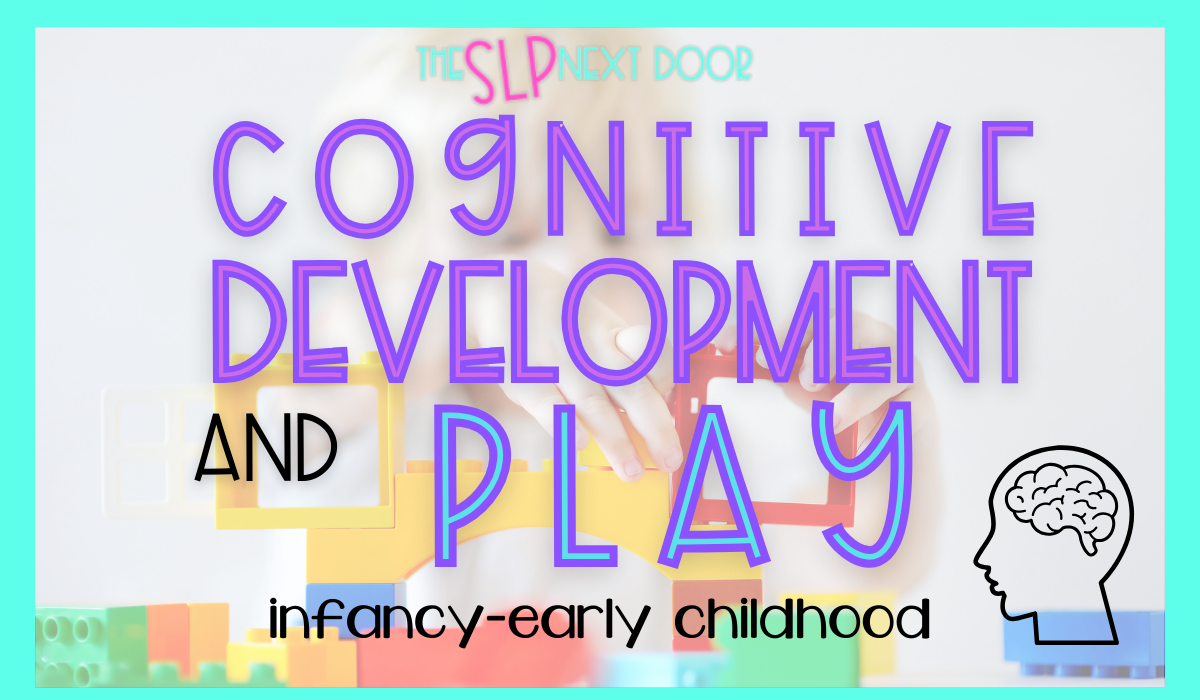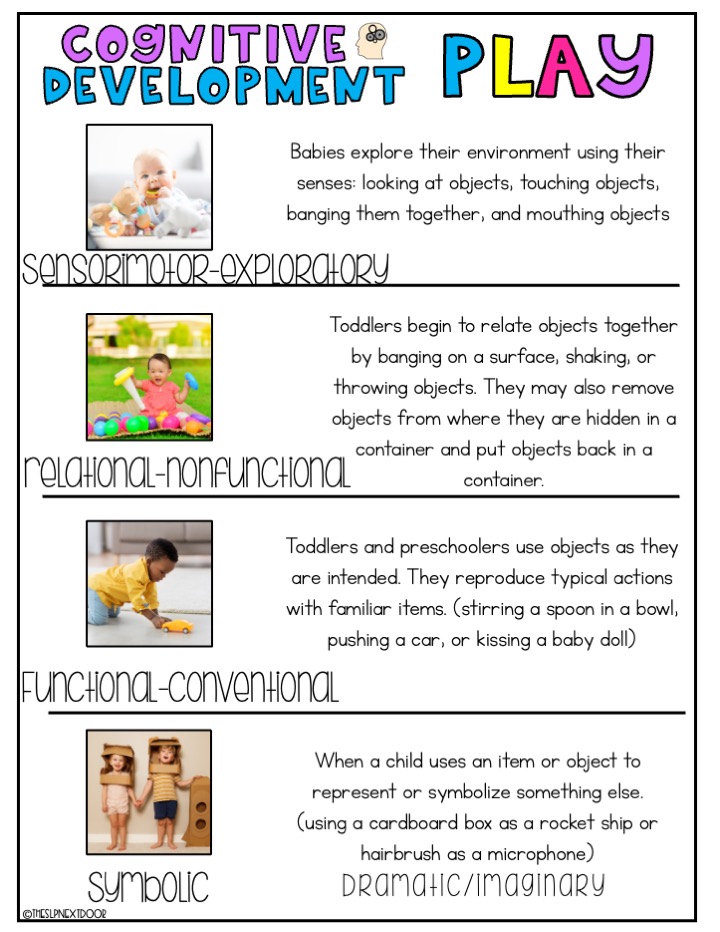What is play?
What are the different stages of play?
The oxford language dictionary defines play as [a verb] “engagement in an activity for enjoyment and recreation rather than serious or practical purposes” and [a noun] “an activity engaged in for enjoyment and recreation, especially by children”. The different stages of play are important. Understanding the different stages of play is vital when using a play-based approach in therapy sessions. Remember, with this age group, progress shows up in the minor details.
This blog post will look at play from the cognitive development perspective. You can read about developmental play from the social perspective here!
This blog post is a condensed version of research and information. Feel free to follow my research and dive in deeper. (be warned though, it’s a rabbit hole)
Vygotsky’s Theory: Cognitive Development
Lev Vygotsky’s theory focuses on the role of culture and socialization in cognitive and language development. He does not divide development into stages. Vygotsky says that children learn from the adults in their world when they (the adults) engage and challenge them in meaningful activities.
Vygotsky’s research says that children are born with basic cognitive functions and build/grow their cognitive abilities through social interactions and adult experiences. He believes talking to children and exposing them to new things/concepts/environments are very important for their development.
Piaget’s Stages: Cognitive Development
Jean Piaget believed that all children progress through stages in terms of cognitive development. While children may move through the stages at different paces, they move through all of them. He believed that children’s interactions with their world encourage their development. Adults offer guidance and support, but not how they learn- children learn through their explorations. Piaget’s stages of play include:
- Sensorimotor stage: birth to 2 years
- Preoperational stage: 2 to 7 years
- Concrete operational stage: 7 to 11 years
- Formal operational stage: ages 12 and up
Sara Smilansky: Play Development
Sara Smilansky worked with Piaget, studying children’s development. She took their work on cognitive development and built on it, essentially specifying it. Her stages of play include:
- Functional (practice) Play
- Constructive play
- Dramatic/Symbolic Play
- Games with Rules.
Stages of Play Development
So, who’s right here? Who should we listen to?
All of them.
It takes information from all these researchers. Vygotsky is right – development does hinge a lot on the interactions between children and adults, differences in culture create differences in our personalities and thinking. Piaget and Smilansky are also correct when he says that children develop by exploring their worlds. When you combine all of the research and findings, you can look at cognitive development across a period:
- Sensorimotor-Exploratory Play
- Relational-Nonfunctional Play
- Functional-Conventional Play
- Symbolic Play
Why are these Stages of Play Important?
Knowing and understanding how children develop makes a huge difference in our evaluations, writing goals, and communicating with parents. One of my biggest requests for podcast topics is people wanting to know how to talk with parents about their children. Know your research. Before we can explain anything to parents, we, the clinicians, must have an understanding of the “why” behind what we are doing.




One Response